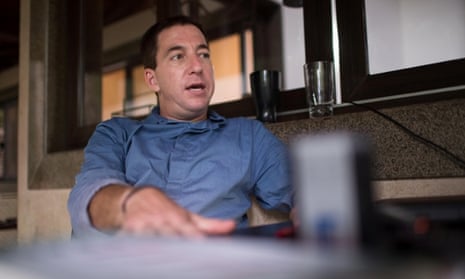Australia is one of the most aggressive countries in the world in terms of mass surveillance and its techniques could be the subject of future leaks, journalist Glenn Greenwald, who first reported on the Edward Snowden revelations for the Guardian, has said.
Greenwald, who now works for The Intercept, told ABC’s Lateline program on Thursday night that Australia is “probably the country that has gotten away with things the most in terms of the Snowden revelations”.
“Australia is one of the most aggressive countries that engage in mass surveillance as a member of the Five Eyes partnership,” he said, referring to a security sharing arrangement between the United States, the United Kingdom, Australia, New Zealand and Canada.
“There has been less reporting on Australia than the other four countries. We intend to change that. There are interesting documents about what Australia is doing to privacy rights – not just to their own citizens,” Greenwald said.
“We are working on the reporting,” he continued. “We will definitely get that done as soon as we can.”
New Australian laws ushered in last year could see journalists jailed for up to 10 years if they reveal details of special intelligence operations. The changes to the Asio Act have been roundly criticised by Australian news outlets.
Greenwald criticised Australian politicians for overstating the terror threat.
“If you are an Australian citizen, you are more likely to die by being struck by lightning or by going out to dinner tonight and contracting a fatal intestinal illness than dying in a terrorism attack,” the journalist said. “When I watch both parties in Australia exploit terrorism fears, it’s a very familiar dynamic.”
On Tuesday, the US Senate voted comprehensively to end the bulk data collection of phone records, a move Greenwald praised.
“Thankfully, in the United States we seem finally to be realising that this has gone on way too long, it has eroded our freedoms too much, but Australia is going in the other direction sadly.”
Earlier this month, National Security Agency whistleblower Edward Snowden spoke via videolink at an Australian conference, where he criticised the country’s data retention laws. New national security laws mandate that telecommunications companies retain users’ data for two years.
“They are watching everybody all the time. They’re collecting information and they’re just putting it in piles that they can then search through, not only locally, not only within Australia, but they can then share this with foreign intelligence services,” Snowden told the conference.

Comments (…)
Sign in or create your Guardian account to join the discussion